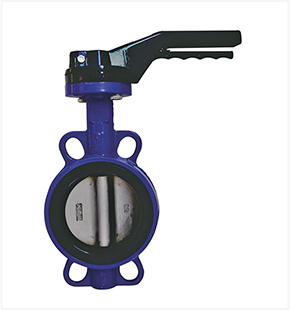10 月 . 15, 2024 02:45 Back to list
industrial ball valve
Industrial Ball Valve An Essential Component in Fluid Control
In the realm of industrial processes, the efficient control of fluids—liquids and gases—is paramount. One of the most effective devices for achieving this control is the ball valve. Renowned for its reliability, versatility, and ease of use, the industrial ball valve has become a fundamental component in various applications, including oil and gas, water treatment, chemical processing, and power generation.
What is an Industrial Ball Valve?
A ball valve is a type of quarter-turn valve that uses a hollow, perforated, and pivoting ball to regulate the flow of fluid. When the valve is open, the ball's hole is aligned with the flow direction, allowing fluid to pass through with minimal resistance. Conversely, when closed, the ball's solid surface blocks the flow completely. This design provides a quick and efficient means of shutting off or allowing fluid flow, making ball valves particularly advantageous in industrial settings.
Features and Benefits
One of the standout features of industrial ball valves is their durability. Constructed from robust materials like stainless steel, carbon steel, and various alloys, these valves can withstand high-pressure environments and corrosive substances. This durability extends the life of the valve, making it a cost-effective solution for companies looking to minimize maintenance and replacement costs.
Another significant advantage is their low operating torque. Ball valves require less force to open or close compared to other valve types, which translates to lower energy consumption and less wear on the actuator. This ease of operation is particularly beneficial in automated systems, where efficiency and speed are essential.
industrial ball valve

Furthermore, ball valves offer a tight seal, preventing leaks and ensuring the integrity of the system. This characteristic is crucial in industries such as oil and gas, where even the slightest leak can result in environmental hazards and financial losses.
Applications in Industry
Industrial ball valves find extensive applications across a variety of sectors. In the oil and gas industry, they are employed for regulating flow in pipelines and processing facilities. Their ability to provide tight sealing under extreme pressure ensures safety and efficiency in transporting crude oil and natural gas.
In chemical processing, where various hazardous substances are handled, ball valves are favored for their superior leak-proof performance. They prevent contamination and protect against chemical spills, thus safeguarding both personnel and the environment.
Water treatment facilities also rely heavily on ball valves for controlling flow rates in filtration and disinfection processes. The quick action of a ball valve allows for rapid adjustments, which is critical during varying flow conditions to maintain optimal treatment levels.
Conclusion
The industrial ball valve is undoubtedly a critical asset in fluid control systems. Its versatility, durability, and efficiency make it an ideal choice for a range of applications in numerous industries. As technology continues to advance, the design and materials used in ball valves will likely evolve, further enhancing their performance and expanding their use in innovative ways. Ultimately, the importance of industrial ball valves in ensuring safe and efficient fluid handling cannot be overstated, making them indispensable in modern industry.
Share
-
Understanding the Differences Between Wafer Type Butterfly Valve and Lugged Butterfly ValveNewsOct.25,2024
-
The Efficiency of Wafer Type Butterfly Valve and Lugged Butterfly ValveNewsOct.25,2024
-
The Ultimate Guide to Industrial Swing Check Valve: Performance, Installation, and MaintenanceNewsOct.25,2024
-
Superior Performance with Industrial Swing Check Valve: The Essential Valve for Any SystemNewsOct.25,2024
-
Industrial Swing Check Valve: The Ideal Solution for Flow ControlNewsOct.25,2024
-
You Need to Know About Industrial Swing Check Valve: Functionality, Scope, and PerformanceNewsOct.25,2024